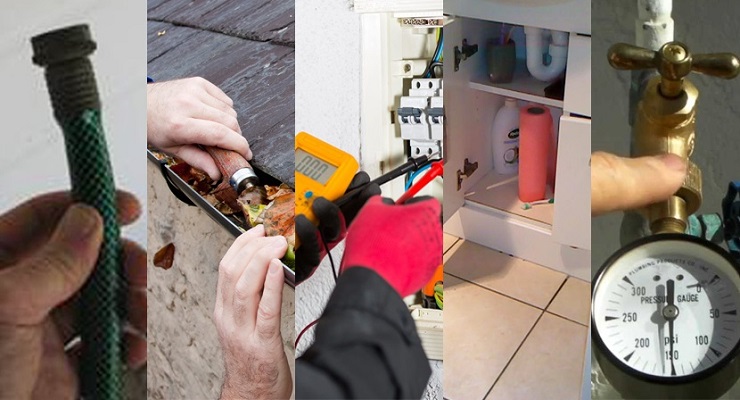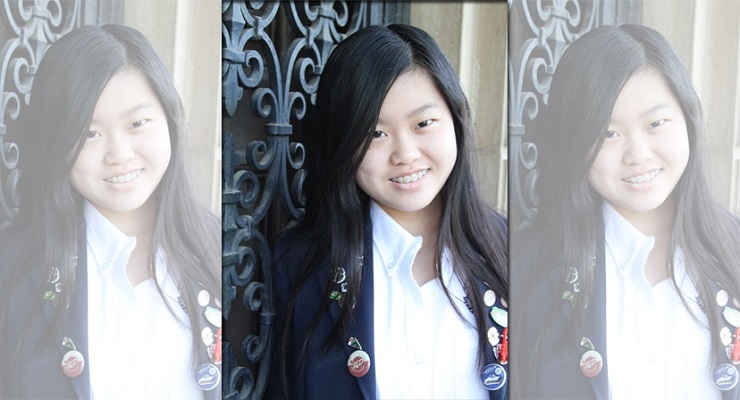Pasadena’s High Point Academy (HPA) received certificates of congressional recognition for its achievements in recycling and composting at a campus ceremony Friday morning. Congresswoman Judy Chu, State Senator Carol Liu, and Pasadena Councilmember Gene Masuda’s field representative, Noreen Sullivan, were the distinguished guests in attendance for the celebration.
In 2009, HPA joined the green school revolution by being the first school in the San Gabriel Valley to partner with zero waste consulting company, Wasteless Living, to improve the health and quality of the environment. The school has seen a multitude of progress and achievements in these practices, in which it has diverted upwards of 87 percent of HPA’s solid waste from landfills, surpassing the city’s goal of 85 percent and earning them congressional recognition.
Click here for more photos of the event.
“We know that there is so much waste, particularly food waste and that means that there is a big problem. You’re so young and involved in fighting climate change and making a more productive use of our waste and I want to thank you for protecting our planet,” Congresswoman Judy Chu said as the ceremony kicked off.
Senator Carol Lu also presented a certificate to HPA following Chu.
“I applaud everyone at HPA for inspiring everyone here and in our community on techniques and the value of recycling and composting,” Lu said.
Headmaster Gary Stern explained the reasons why HPA has excelled in green practices in recent years.
“At High Point, we believe that a better future environment for our children starts today. What’s really important for our children to understand is that when they compost at school and it goes to the facility and comes back to enrich our soil on campus, that’s when the learning really happens,” Stern said.
Wasteless Living is a zero waste consulting company hired in 2009 by a parent who wanted to use their services for private school events. Within two years, that relationship led to integrating composting into the school’s curriculum. Students are trained starting in Kindergarten to separate and correctly dispose of their lunch materials appropriately between recycling, compost and landfill bins located all over campus.
“There was kind of a ‘buzz factor’ amongst parents and faculty which evolved into the development of a curriculum and the school itself started adopting more initiatives and demos within the classroom,” explained Christine Lenches-Hinkel, owner of Wasteless Living.
HPA started planning the compost study in 2011 and applied it in 2012. Students are actively involved with daily participation in discarding waste, studying the compost that comes back from the composting facility in Fontana and conducting reports and database entry of the information.
“The kids are actually seeing that what we do everyday at lunch has bigger global benefits,” said science teacher Krista Huezo.
In fact, this process goes much further than simply recycling and composting by having students work with environmental industry experts, develop analytical skills, apply real world math and science knowledge and to engage with the community and peers frequently.
The ceremony was followed by three student presentations involving the zero waste-focused Organics Recovery Process (ORP) findings and the school’s progress this past year. There is a strong support system between students, parents and faculty that is propelling the practice of composting at HPA.
Mojgan Maher, a mother of two daughters that attend HPA is thrilled with the initiative the school has taken and the impact it has brought in to her home.
“It’s wonderful. Ever since they (HPA) have done this we have been very careful with what we pack in their lunches. I definitely want to start doing composting at home,” Maher said.
HPA aims to extend inspiration to other schools and organizations to get on board with composting at the level and frequency they have established. The initiative extends the boundaries of the classroom into a real world application and practices that can be used for a lifetime.
“The school has invested heavily in this program over the years because of what the students are getting out of it. Not only is it just an academic boost in their analytical and problem solving skills, but also a very real advancement towards environmental mindfulness,” Lenches-Hinkel explained.
HPA’s recycling and composting measures are certainly a mainstay practice within the school and do not seem to be slowing down. Today’s ceremony recognizing the efforts of everyone involved is another certificate to tack on the wall of achievements that will continue to grow over the years.
In addition to the accomplishment of diverting 87 percent of solid waste, HPA has a few other awards under its belt. Since the program’s inception, the school has composted over 25 tons of organic material, reduced GHG emissions by 148 percent, received the City of Pasadena Outstanding Recycler Award in 2010 and has been awarded $10,000 from Lexus for their zero waste efforts.
“We hope all of our guests today are inspired by our students’ efforts and will consider using some of our sustainability measures in your homes and in your workplaces. We believe that a better future environment for our children starts today,” Stern concluded.
For more information and updates on HPA’s composting program and how to get involved, visit www.highpointacademy.org and www.wastelessliving.com.













